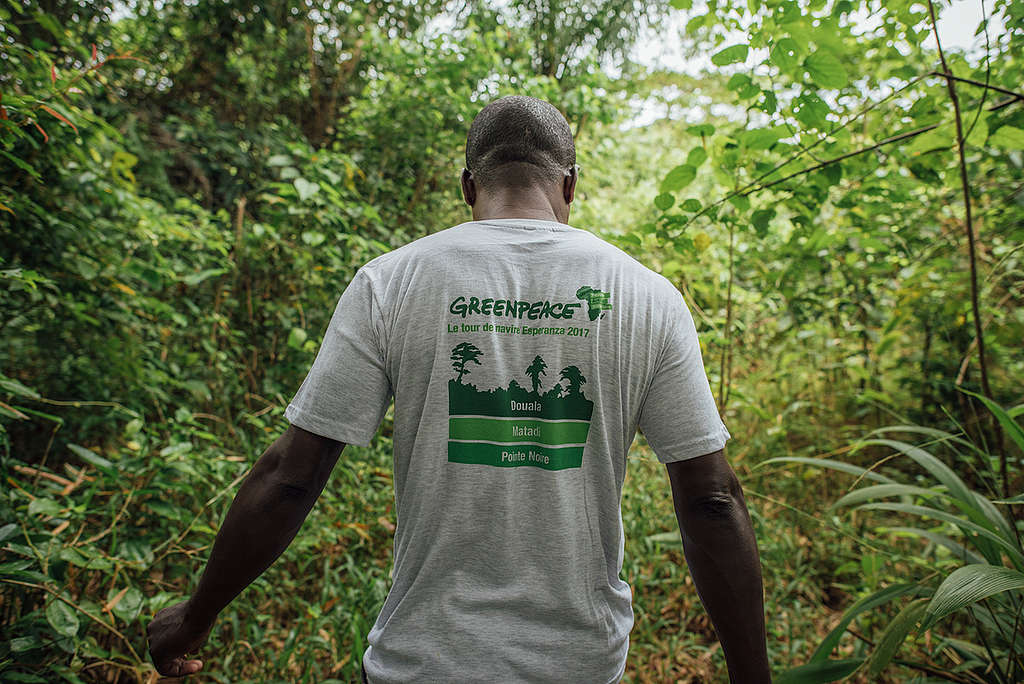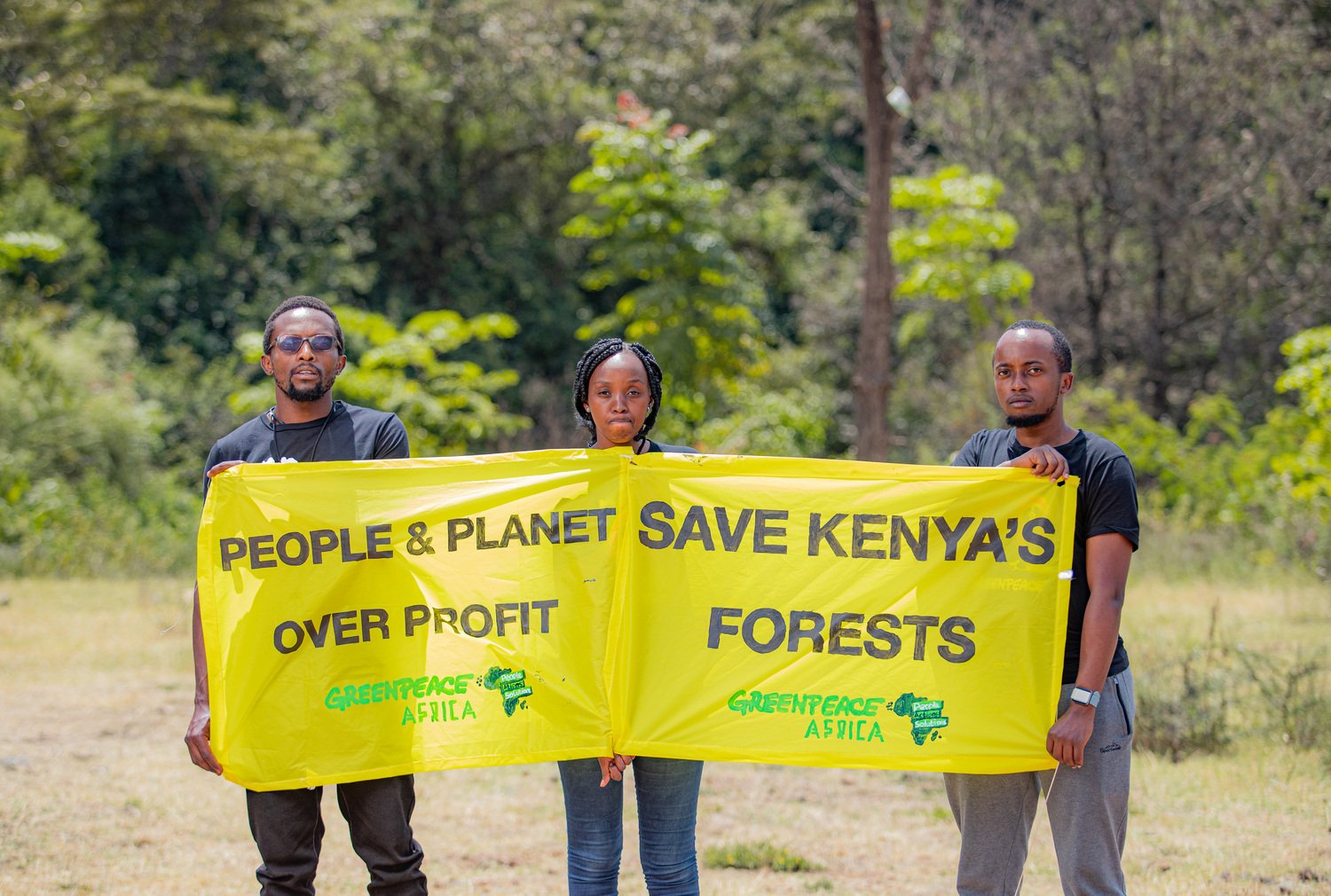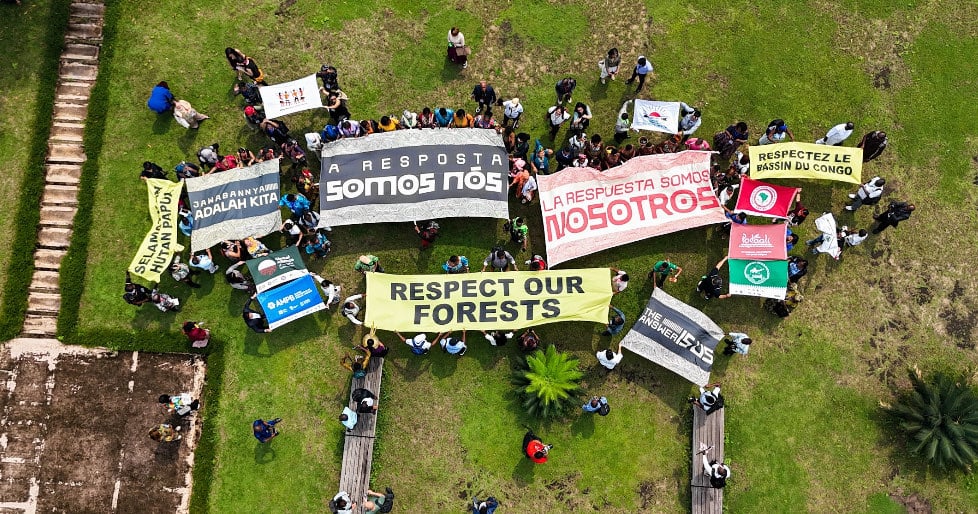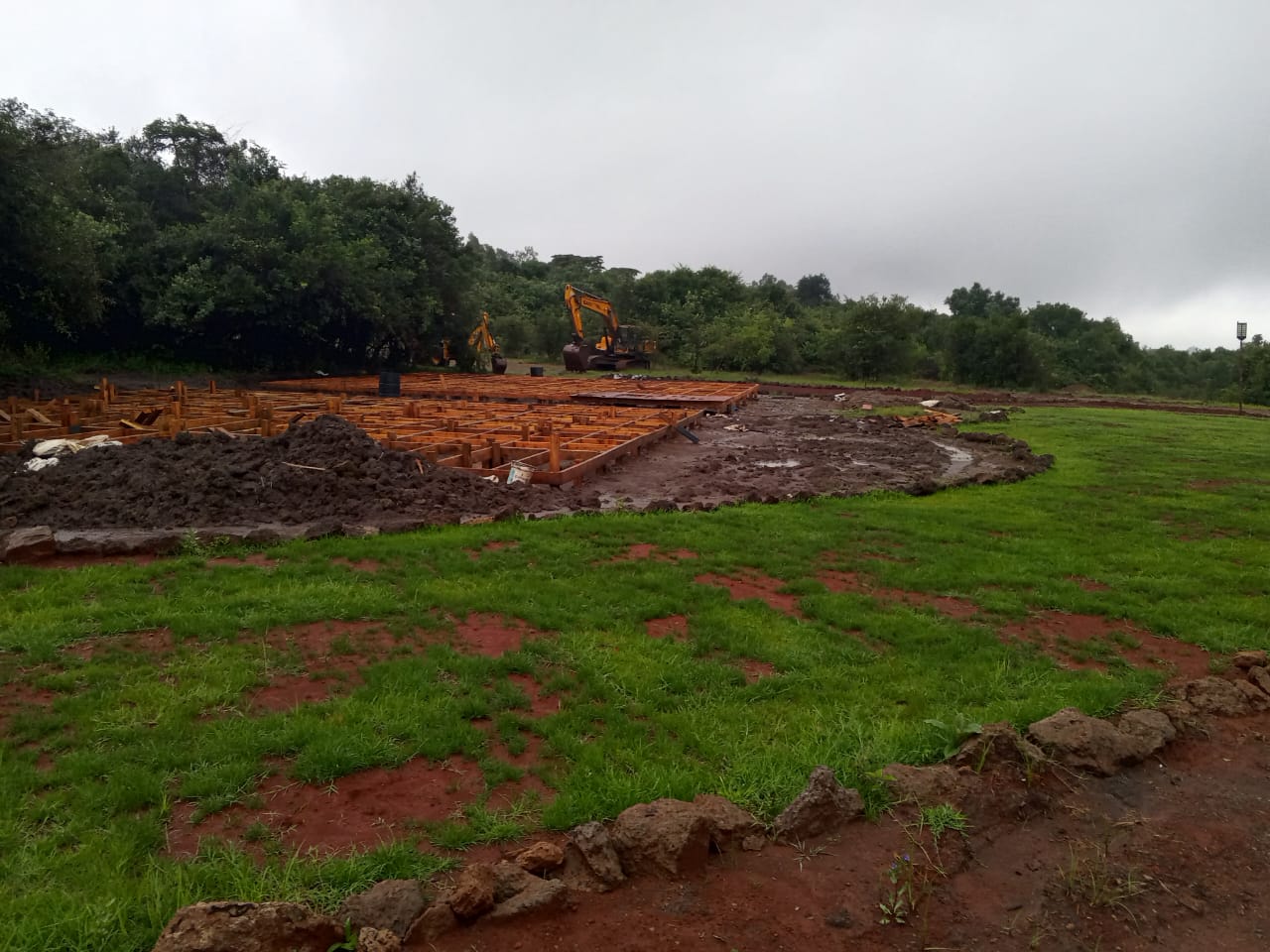Kinshasa, 29 October: Greenpeace has learned that the Congolese Vice-Prime Minister and Environment Minister currently presenting her country as the world’s carbon offsetting solution was promoting six illegal forest “conservation” concessions the size of the Bahamas only days before President Felix Tshisekedi ordered them suspended, in the run-up to COP26. On 13 September, Minister Eve Bazaiba signed a mission order for seven members of her ministry to accompany a team of the firm Tradelink in the province of Tshopo. Her own constituency of Basoko featured on the itinerary.
Tradelink is an obscure import/export firm which in September 2020 was illegally awarded six so-called “conservation concessions” covering 1,376,375 ha. Its only known shareholder is a Belgian expatriate who made his career in mining, timber and oil.
“The granting of these concessions would appear to be the biggest “handover” of Congolese territory to Belgian interests since independence,” said Irène Wabiwa Betoko, head of the Greenpeace Africa campaign for the Congo Basin forest. “By providing her support to this scam, the minister has demonstrated her contempt for both Congolese law and civil society, as well as the commitments of President Tshisekedi to the donor countries he is currently courting.”
At the moment Minister Eve Bazaiba signed her order, she had known about the Tradelink affair for months: on June 9, civil society filed an administrative appeal seeking the cancellation of the contracts. Her signature came three days after the expiry of the legal deadline for responding to it.
The company’s fans had by that time significantly dwindled: the Congolese Institute for the Conservation of Nature (ICCN) had confirmed the illegality of the concessions in July; in August the governor of Tshuapa province called for their cancellation. The Minister of Regional Planning recognized the “appropriateness” of the steps civil society had taken.
Eve Bazaiba wasn’t interested. On 13 September, having “no lesson to learn from an NGO,” she dispatched a member of her cabinet, three section chiefs, the national REDD+ coordinator and two other ministry officials in support of the giant land grab. Or in ministerial language: to “Facilitate the negotiation and signing of social clause agreements, carry out socio-economic surveys and sign the FPIC of the firm TRADELINK.”
Free, Prior and Informed Consent (FPIC) is a notion Ms. Bazaiba clearly misunderstands: “prior” means before the signing of juicy contracts, not after the “agreed sums” have been pocketed.
Oddly, a provincial ministry official was assigned to the mission as a “representative of the company.” Mission expenses were, naturally, “covered by the concessionaire.”
At the end of October, days after President Tshisekedi ordered the suspension of the concessions, the minister’s team was still in the field.
The revelation of Ms. Bazaiba’s involvement in the Tradelink affair comes just as the Congolese government seeks to push donors to accept a lifting of the 2002 moratorium on the allocation of new logging concessions. At COP26, the DRC will present itself as a “solution country.”
Donors should know that when it comes to signing mission orders, Ms. Bazaiba applies double standards. When EU-financed auditors arrived in Kinshasa last spring to investigate the legality of forest titles, there was no rush: they were forced to wait until two months after the EU ambassador himself had to intervene to request she sign their mission order. When the mission is to aid Tradelink, her pen doesn’t hesitate.
Greenpeace Africa calls on the Head of State Felix Tshisekedi to order an urgent investigation to establish the responsibilities of all those, including Minister Eve Bazaiba, involved in the Tradelink scheme and to ensure that proper legal sanctions are applied.
Greenpeace Africa reiterates its request to President Tshisekedi to see that his decision to suspend all illegal logging concessions is carried out.
At a time when the whole world is mobilized for COP26, the DRC government must send a strong signal to both the Congolese and international community that Congo’s forests are safe from new scams, by strengthening the decree on the moratorium on new forest concessions.
END
For more information and interviews:
Raphaël Mavambu, Media and Communication, Greenpeace Africa, [email protected]
Irène Wabiwa Betoko, International Project Manager for the Congo Basin Forest a.i., Greenpeace Africa, [email protected]




